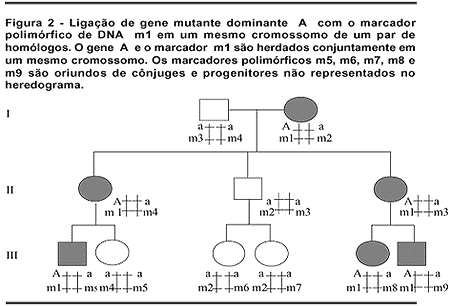This paper concisely reviews the genetics of Alzheimer Disease (AD). So far, three different genes have been implicated in AD. Specifically, the gene that codes for APP <FONT FACE="Symbol">-</FONT> the amyloid beta precursor protein, which is associated to dementia through intense brain deposition <FONT FACE="Symbol">-</FONT> the presenilin 1 gene (PS1) and the presenilin 2 gene (PS2). Both presenilin genes code for cellular membrane proteins and PS1 are responsible for approximately 40% of the early-onset familial cases. Genes that code for ApoE4, alpha-2 macroglobulin and cathepsin D, which are all involved in APP metabolism, have been considered as risk factors for AD. The ApoE4 gene is a risk factor in about 50% of the AD sporadic and late-onset cases. Several other genes that have been associated to AD are briefly discussed. Different strategies for genetic counseling of relatives are considered, and finally, ribosomal gene alterations are discussed as possible mechanisms underlying genetic progeroid syndromes such as AD.
Alzheimer disease; genetics; genetic counseling



